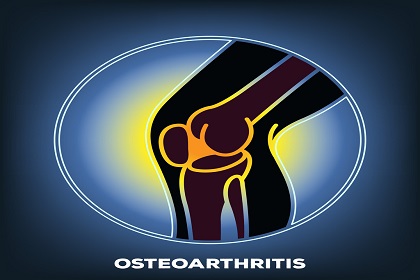Search
Why get vaccinated?
Influenza (“flu”) is a contagious disease that spreads around world. Flu is caused by influenza viruses, and is spread mainly by coughing, sneezing, and close contact. Anyone can get flu. Flu strikes suddenly and can last several days. Symptoms vary by age, but can include:
• Fever/chills
• Sorethroat
• Muscleaches
• Fatigue
• Cough
• Headache
• Runny or stuffynose
Flu can also lead to pneumonia and blood infections, and cause diarrhea and seizures in children. If you have a medical condition, such as heart or lung disease, flu can make it worse.
Flu is more dangerous for some people. Infants and young children, people 65 years of age and older, pregnant women, and people with certain health conditions or a weakened immune system are at greatest risk.
Flu vaccine can:
• Keep you from getting flu
• Make flu less severe if you do get it
• Keep you from spreading flu to your family and other people
Inactivated and recombinant flu vaccines
A dose of flu vaccine is recommended every flu season. Children 6 months through 3 years of age may need two doses during the same flu season. 2 doses of vaccine with interval of 4 weeks. Everyone else needs only one dose each flu season. There is no live flu virus in flu shots. They cannot cause the flu.
There are many flu viruses, and they are always changing. Each year a new flu vaccine is made to protect against three or four viruses that are likely to cause disease in the upcoming flu season. But even when the vaccine doesn't exactly match these viruses, it may still provide some protection.
Flu vaccine cannot prevent:
• Flu that is caused by a virus not covered by the vaccine
• Illnesses that look like flu but are not
It takes about 2 weeks for protection to develop after vaccination, and protection lasts through the flu season.
Some people should not get this vaccine
Tell the person who is giving you the vaccine:
• If you have any severe, life-threatening allergies.If you ever had a life-threatening allergic reaction after a dose of flu vaccine, or have a severe allergy to any part of this vaccine, you may be advised not to get vaccinated. Most, but not all, types of flu vaccine contain a small amount of egg protein
• If you ever had Guillain-Barré Syndrome (also called GBS). Some people with a history of GBS should not get this vaccine. This should be discussed with your doctor
• If you are not feeling well. It is usually okay to get flu vaccine when you have a mild illness, but you might be asked to come back when you feel better
Risks of a vaccine reaction
With any medicine, including vaccines, there is a chance of reactions. These are usually mild and go away on their own, but serious reactions are also possible. Most people who get a flu shot do not have any problems with it.
After vaccination, please stay in clinic observation area for 30 minutes.
Minor problems following a flu shot include
• Soreness, redness, or swelling where the shot was given
• Hoarseness
• Sore, red or itchy eyes
• Cough
• Fever
• Aches
• Headache
• Itching
• Fatigue
If these problems occur, they usually begin soon after the shot and last 1 or 2 days.
More serious problems following a flu shot can include the following
• There may be a small increased risk of Guillain-Barré Syndrome after inactivated flu vaccine. This risk has been estimated at 1 or 2 additional cases per million people vaccinated. This is much lower than the risk of severe complications from flu, which can be prevented by flu vaccine
• Young children who get the flu shot along with pneumococcal vaccine (PCV13) and/or DTaP vaccine at the same time might be slightly more likely to have a seizure caused by fever. Ask your doctor for more information. Tell your doctor if a child who is getting flu vaccine has ever had a seizure
Problems that could happen after any injected vaccine
• People sometimes faint after a medical procedure, including vaccination. Sitting or lying down for about 15 minutes can help prevent fainting, and injuries caused by a fall. Tell your doctor if you feel dizzy, or have vision changes or ringing in the ears
• Some people get severe pain in the shoulder and have difficulty moving the arm where a shot was given. This happens very rarely
• Any medication can cause a severe allergic reaction. Such reactions from a vaccine are very rare, estimated at about 1 in a million doses, and would happen within a few minutes to a few hours after the vaccination
As with any medicine, there is a very remote chance of a vaccine causing a serious injury or death.
What if there is a serious reaction?
What should I look for?
Look for anything that concerns you, such as signs of a severe allergic reaction, very high fever, or behavior changes. Signs of a severe allergic reaction can include hives, swelling of the face and throat, difficulty breathing, a fast heartbeat, dizziness, and weakness. These would start a few minutes to a few hours after the vaccination.
What should I do?
If you think it is a severe allergic reaction or other emergency that can't wait, call 120 or get the person to the nearest hospital. Otherwise, call your doctor.
Where can I get more information?
• Jiahui Health
Contact number: 400-868-3000
• Shanghai Municipal Center for Disease Control & Prevention
Contact number: 021-62758710
Website: http://www.scdc.sh.cn
Reference
The US Centers for Disease Control and Prevention. Vaccine Information Statement: Inactivated Influenza Vaccine, 08/07/2015
Click the link for more information on Family Medicine Clinical Service
Click the link for more information on Pediatrics Clinical Service











